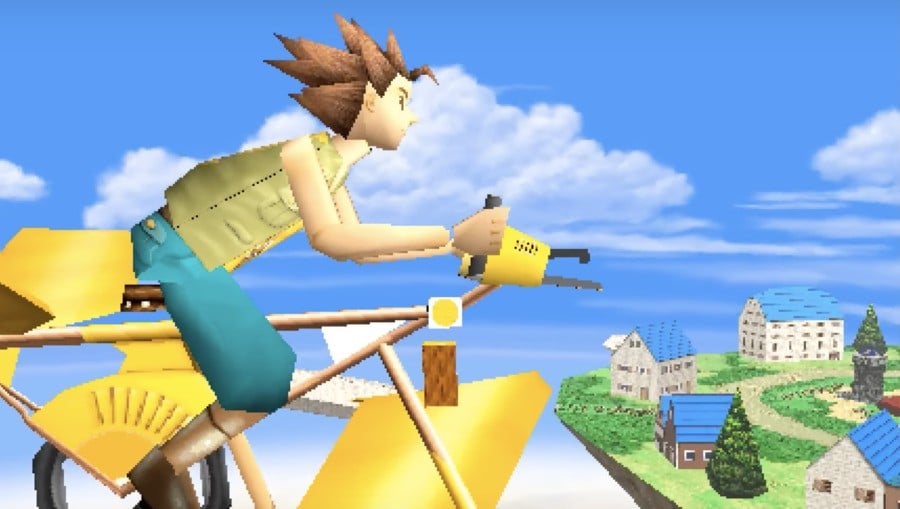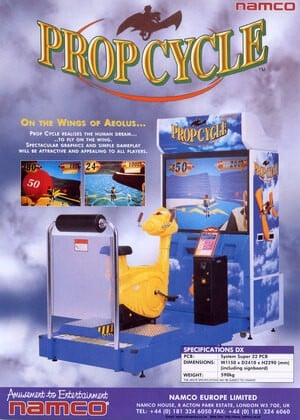
During the PlayStation One era, Namco established itself as one of the most successful video game publishers in the world, releasing a string of fantastic conversions based on its arcade masterpieces — helped along, of course, by the creation of the System 11 arcade board.
However, as the former Namco US product manager Jerry Momoda recently claimed in an exclusive interview with Time Extension, this close partnership with Sony also acted as a bit of "a double-edged sword", closing the gap between home consoles and the arcade and making it harder for players to justify pouring quarters into a machine they already felt they owned at home.

This effectively killed Namco's arcade business, Momoda claims:
"I saw coin-ops impending doom soon after the first Tekken. Namco partnered with Sony in the development of System 11. Without Sony, System 11 would not have been as good. And without Namco, the PlayStation would not have been adopted as fast by players. Several Namco coin-op games became PS launch titles. Arcades were the proving ground. But consoles were where the really big money was made.
"This symbiotic relationship proved to be a double-edged sword for Namco. While Namco produced successful coin-op games on this hardware, it proved arcade-quality games would be available for the home. For years, the best hardware and best games were clearly at the arcade. The Sega and Nintendo home systems could not compete with constantly evolving arcade hardware. Once I saw the PlayStation was the equal to System 11, I knew coin-ops long reign was over."
In response, Namco tried a desperate tactic to keep its arcade business alive. That tactic, according to Momoda, was for the company to switch to creating more experiential types of games — ones that couldn't necessarily be reproduced at home on a console. Titles like Prop Cycle, Final Furlong, and Alpine Racer.
About these kinds of games, Momoda recalled:
"The only card we could play was to create game experiences that couldn’t be duplicated at home. I provided concepts for games that were more location-based. During the time of early Tekken, I provided a concept that lent itself to what eventually became Time Crisis. Our location-based games had special controls and cabinet configurations with seats that could only be played in the arcade.
"One such game was called Prop Cycle. Players controlled a turn-of-the-century, self-propelled glider by pedalling. It was so unique and to this day, I'm still disappointed that more wasn’t done with a game like that. It was very creative and way ahead of its time. Exercise could add to a player’s sense of moment-to-moment action, but game players aren’t necessarily athletes. We also developed two snow-based games, Alpine Racer (skiing) and Alpine Surfer (snowboarding) that were successful. Tokyo Wars, Speed Racer, Final Furlong, and Rapid River were less so."
Despite Namco's attempt to carve out a niche, the coin-op business struggled to justify itself against the more profitable console market, and Momoda himself was laid off (alongside many others) following a decline in the company's arcade sales and an internal restructuring.
This tactical retreat from the arcade market represented a true end of an era for the company, and shocked members of the Tekken team who had worked with Momoda over the past few years and acknowledged his incredible contribution to the series:
"I remember the Tekken team being shocked that something like that could happen because I was important to the Tekken project. It was Namco’s most successful franchise. But, you know, that’s the way of the world. That’s business. I’m proud that with Tekken 1, 2, and 3, company revenues doubled for three consecutive years and unit sales volume grew eight-fold over four years. I’m not sure if it still holds true, but not long ago Tekken was the most successful fighting game in history."
If you're interested in finding out more about Momoda, you can read the rest of our interview with him here. There you will find out more information about his remarkable involvement in launching the Tekken series in the US.
